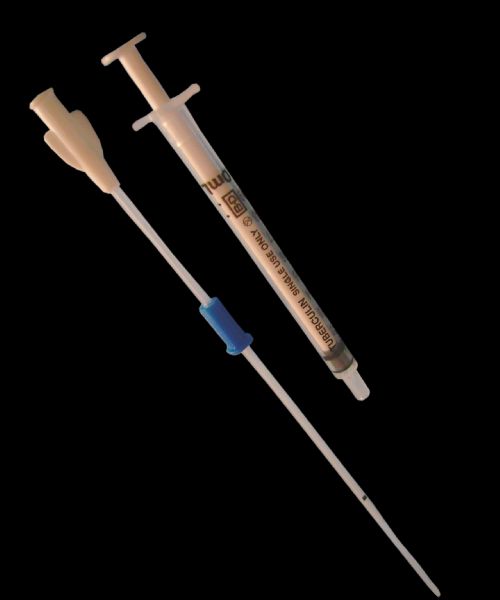The Intrauterine Insemination Devices Market is anticipated to be worth US$ 40.5 million in 2023 and US$ 57.5 million by 2033. Devices for intrauterine insemination are expected to be in high demand, with a 3.6% CAGR predicted.
The demand for intrauterine insemination devices is being driven by the rising awareness of reproductive treatments and infertility. A growing number of couples are looking for therapeutic alternatives for conception due to the issue of infertility. More patients are turning to intrauterine insemination as a feasible alternative as a result of rising awareness of infertility and reproductive treatments, creating a growth potential for the industry.
Prepare To Thrive And Conquer New Horizons With Our Sample Report – Get It Now! https://www.futuremarketinsights.com/reports/sample/rep-gb-12776
Developing new and advanced intrauterine insemination devices is driving market growth. The development of automated sperm analysis systems and sperm selection devices makes the procedure more efficient and effective. The technological advancements in these devices are making the process safer and more convenient, which can increase their adoption among patients.
The adoption of intrauterine insemination devices is increasing among same-sex couples and single women for fertility treatment. An intrauterine insemination is a viable option for these groups. It is a less invasive and more affordable fertility treatment option than other assisted reproductive technologies (ART), such as IVF devices.
The limited insurance coverage for fertility treatments, including intrauterine insemination, is a significant challenge for the market. The lack of insurance coverage can limit patient access to these treatments, restricting the market growth.
The availability of skilled healthcare professionals for the procedure is limited in some regions. The lack of skilled professionals can limit the adoption of intrauterine insemination as a viable treatment option, which can impact market growth. Moreover, the increasing competition from alternative fertility treatments such as IVF devices and GIFT can impact market growth. These treatments are more expensive than intrauterine insemination, but they offer higher success rates, which can make them a more attractive option for some patients. The competition from these treatments can limit the adoption of intrauterine insemination as a viable treatment option.
Key Takeaways:
- The global intrauterine insemination devices market is growing due to the increasing prevalence of infertility.
- Intrauterine insemination is a first-line treatment for infertility and is gaining adoption in developing countries.
- Technological advancements in intrauterine insemination devices drive market growth, with the increased adoption of real-time monitoring and feedback systems.
- Intrauterine insemination devices are more affordable than other assisted reproductive technologies (ART), making them popular among same-sex couples and single women.
- The high cost of intrauterine insemination treatment and devices, limited insurance coverage, and a stringent regulatory approval process are key challenges facing the intrauterine insemination devices market.
Get In Touch With Our Analyst To Resolve Any Doubts You May Have! https://www.futuremarketinsights.com/ask-question/rep-gb-12776
Competitive Landscape:
The competitive landscape of the intrauterine insemination devices market is moderately competitive with several players operating in the market. Some of the
Key Players In The Market Include:
- The Cooper Companies Inc.
- Cook Medical Inc.
- Vitrolife AB
- Rinovum Women’s Health, LLC
- Ferring B.V.
- ZEUS Scientific, Inc.
- Fujifilm Holdings Corporation
- Merck KGaA
- INVO Bioscience, Inc.
- Cook Medical LLC
These companies are actively involved in product innovation, partnerships, and collaborations to strengthen their market position. For instance, in 2021, Cook Medical launched its new InvoCell Culture Device, designed to support the InvoCell intravaginal culture (IVC) process. Similarly, in 2020, Vitrolife AB launched its new Vitrolife time-lapse incubator, designed to improve the success rate of in vitro fertilization.
The intrauterine insemination devices market is also characterized by several regional players offering intrauterine insemination devices. The key strategies these regional players adopt include pricing strategies, partnerships, and collaborations to expand their product portfolio and market presence.
Discover the Future of Marketing: Get Your Hands on Our Customization Report! https://www.futuremarketinsights.com/customization-available/rep-gb-12776
Key Market Segments Covered in Intrauterine Insemination Devices Industry Research:
By Product:
- Intrauterine Insemination Catheters
- Curved
- Flexible
- Straight
- Intrauterine Insemination Media/ Sperm Wash
By End-User:
- Hospitals
- IVF Clinics
By Region:
- North America
- Latin America
- Europe
- South Asia
- East Asia
- Oceania
- The Middle East and Africa (MEA)
About Future Market Insights (FMI)
Future Market Insights, Inc. (ESOMAR certified, recipient of the Stevie Award, and a member of the Greater New York Chamber of Commerce) offers profound insights into the driving factors that are boosting demand in the market. FMI stands as the leading global provider of market intelligence, advisory services, consulting, and events for the Packaging, Food and Beverage, Consumer Technology, Healthcare, Industrial, and Chemicals markets. With a vast team of over 5000 analysts worldwide, FMI provides global, regional, and local expertise on diverse domains and industry trends across more than 110 countries.
Contact Us:
Future Market Insights Inc.
Christiana Corporate, 200 Continental Drive,
Suite 401, Newark, Delaware – 19713, USA
T: +1-845-579-5705
For Sales Enquiries: sales@futuremarketinsights.com
Website: https://www.futuremarketinsights.com
LinkedIn| Twitter| Blogs | YouTube
